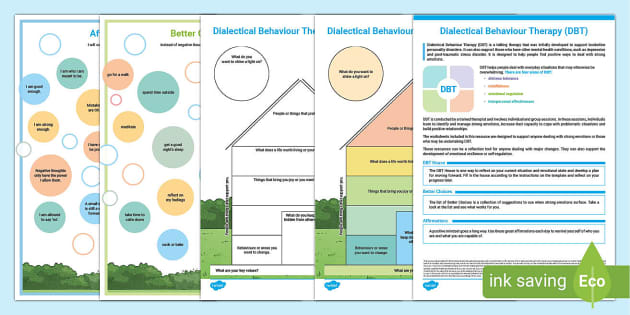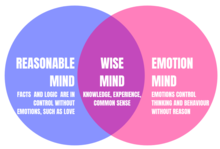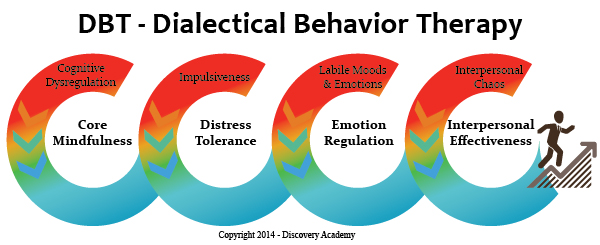Discover the Transformative Power of DBT London Therapy Sessions
Discover the Transformative Power of DBT London Therapy Sessions
Blog Article
Encouraging People With Efficient Dialectical Behavior Treatment (DBT) Providers: Building Stronger Mental Health Foundations
In the world of psychological health and well-being, the importance of equipping individuals via effective Dialectical Behaviour Therapy (DBT) services can not be overstated. By concentrating on the core principles of DBT, such as improving psychological law abilities, boosting social performance, constructing distress resistance strategies, and growing mindfulness practices, people can get started on a trip in the direction of building stronger mental wellness structures. The effect of DBT exceeds simple sign monitoring; it offers an alternative technique that furnishes individuals with the tools required to browse life's obstacles with strength and self-awareness. As we check out the transformative capacity of DBT in empowering people to lead even more satisfying lives, the path to enhanced psychological health and wellness and well-being becomes a compelling story that beckons exploration.
Comprehending the Core Concepts of DBT


One core concept of DBT is recognition. Another basic facet is dialectics, which instructs people to watch situations from multiple point of views and discover the synthesis in between contradictory thoughts or emotions.
Moreover, the principle of dialectical abstinence is central to DBT. This principle motivates people to avoid self-destructive behaviors while likewise accepting themselves. By recognizing and incorporating these core concepts, specialists can efficiently implement DBT techniques and assistance individuals in their journey in the direction of emotional law and mental well-being.
Enhancing Psychological Policy Skills
Establishing proficiency in taking care of emotions is a basic element of promoting emotional wellness and interpersonal effectiveness - DBT London. Enhancing psychological guideline skills is a core part of Dialectical Practices Therapy (DBT) that gears up people with the tools to navigate extreme feelings in a healthy and positive way. With DBT, individuals learn to identify, recognize, and regulate their feelings, causing boosted psychological health end results
DBT highlights the importance of mindfulness, which entails existing in the moment without judgment. This practice allows individuals to observe their emotions without becoming overwhelmed by them, enhancing their capacity to react successfully instead of react impulsively. By growing mindfulness, individuals can create a higher feeling of self-awareness and emotional control.
Furthermore, DBT educates functional skills such as distress resistance and feeling policy techniques to aid individuals manage tough emotions. By learning these abilities, people can minimize spontaneous actions, improve decision-making, and reinforce their relationships with others. Inevitably, improving psychological law skills through DBT encourages individuals to lead more meeting and well balanced lives.

Improving Interpersonal Performance
Having developed a strong foundation in psychological policy skills within the framework of Dialectical Behaviour Therapy (DBT), the focus now shifts towards improving interpersonal efficiency. Improving social efficiency is an essential element of DBT as it furnishes people with the needed abilities to browse social interactions, interact efficiently, set limits, and develop healthier connections.
In DBT, interpersonal effectiveness abilities are taught through modules that focus on locations such as assertiveness, reliable interaction, and interpersonal analytic. By finding out these skills, individuals can boost their capability to share their wishes and needs, keep pride, and construct stronger connections with others.
Practicing mindfulness is an integral component of enhancing social effectiveness within the DBT framework. Mindfulness allows people to be present in their communications, listen proactively, and react attentively instead than react impulsively. By including mindfulness into their day-to-days live, individuals can cultivate better self-awareness and emotional guideline, which are vital for effective interpersonal communications.
Structure Distress Tolerance Methods
Discovering effective approaches for managing emotional distress is crucial for individuals looking for to boost their coping skills and durability. Structure distress tolerance methods is a crucial element of Dialectical Behavior Treatment (DBT) that equips people to browse challenging feelings without coming to be overloaded - DBT London. One fundamental strategy in DBT for distress tolerance is the acronym "APPROVES," which represents Activities, Adding, Contrasts, Feelings, Pushing away, Thoughts, and Feelings. By using these approaches, individuals can successfully cope with distressing situations and regulate their emotional reactions.
Additionally, mindfulness methods play a considerable function in building distress tolerance. Mindfulness urges people to remain present in the moment without judgment, permitting them to observe their ideas and feelings without reacting visite site impulsively. This awareness enables people to tolerate distress better and establish a better feeling of control over their actions.
Along with these techniques, creating a personalized distress resistance strategy with the assistance of a qualified specialist can give people with a customized strategy to handling emotional distress - DBT London. By including these methods into life, people can enhance their psychological health and wellness foundations and boost their general well-being

Cultivating Mindfulness Practices
To deepen their distress tolerance methods better, individuals can concentrate on growing mindfulness practices as a corresponding approach within the framework of Dialectical Behavior Treatment (DBT) Mindfulness, a vital component of DBT, entails taking notice of the present minute without judgment. By promoting mindfulness, people can boost their recognition of ideas, feelings, and physical experiences, advertising a much deeper understanding of themselves and their experiences.
Mindfulness techniques in DBT consist of strategies such as conscious breathing, body scans, and observing ideas without accessory. These techniques urge people to establish a non-reactive position in the direction of their internal experiences, enabling them to Discover More react to difficult circumstances with higher clarity and composure. By integrating mindfulness into everyday regimens, people can find out to manage their feelings better, decrease impulsive habits, and grow a sense of inner peace.
Via growing mindfulness techniques, people going through DBT can build a solid foundation for taking care of stress, boosting partnerships, and improving overall health. By integrating mindfulness into their healing journey, people can create important abilities that encourage Homepage them to navigate life's obstacles with durability and self-awareness.
Final Thought
Finally, reliable Dialectical Practices Treatment (DBT) services play an essential duty in empowering individuals to develop stronger psychological wellness foundations. By recognizing the core principles of DBT, boosting emotional policy abilities, boosting social performance, developing distress resistance techniques, and growing mindfulness techniques, individuals are geared up with the necessary devices to navigate their feelings, relationships, and obstacles in a much more adaptive and resilient fashion. DBT services use a detailed approach to advertising mental well-being and empowering people to lead satisfying lives.
By focusing on the core concepts of DBT, such as improving emotional regulation abilities, improving interpersonal efficiency, constructing distress resistance strategies, and cultivating mindfulness practices, people can get started on a trip towards building stronger mental health structures. Enhancing psychological policy skills is a core part of Dialectical Behavior Treatment (DBT) that equips people with the devices to browse intense feelings in a healthy and useful fashion.Furthermore, DBT instructs sensible abilities such as distress tolerance and emotion policy methods to assist individuals handle difficult feelings.To strengthen their distress resistance strategies additionally, people can concentrate on growing mindfulness methods as a corresponding technique within the structure of Dialectical Behavior Therapy (DBT) By recognizing the core concepts of DBT, improving psychological policy skills, enhancing interpersonal effectiveness, building distress tolerance strategies, and growing mindfulness techniques, people are outfitted with the essential devices to browse their emotions, relationships, and obstacles in an extra flexible and durable fashion.
Report this page